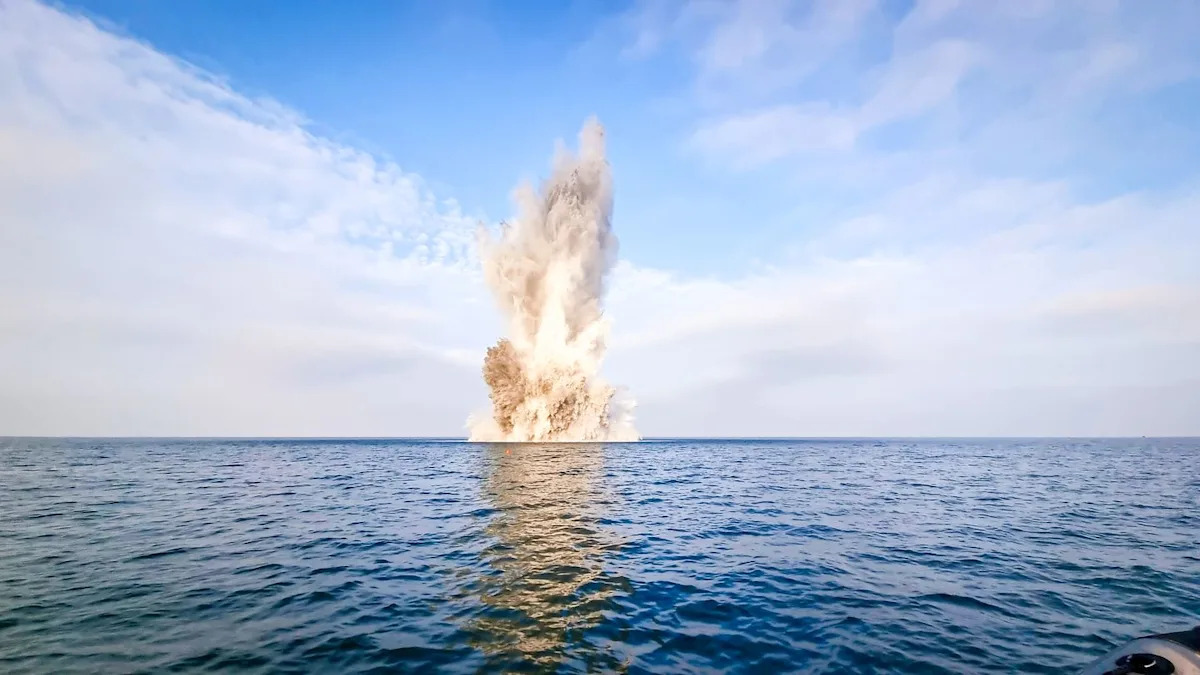Here’s what you’ll learn when you read this story:
-
A spacecraft called the Nyx capsule recently crashed in the Pacific Ocean after the landing parachutes failed to deploy.
-
The capsule carried cargo including cannabis and human remains, all of which were lost in the crash.
-
After apologizing to the families who lost their loved one’s remains, the company responsible for the spacecraft said this “partial success” should serve as an important learning opportunity for future reusable space flight missions.
As part of a rideshare mission with SpaceX, the Nyx capsule launched from the Vandenberg Space Force Base on June 23rd. The next day, after successfully re-entering the atmosphere on June 24th, the capsule crashed into the Pacific Ocean and lost some unexpected cargo: cannabis and human remains.
The Nyx capsule and its launch was part of the program “Mission Possible” led by a German start-up called The Exploration Company (TEC). The launch marks TEC’s second spacecraft to reach orbit in under four years.
Now, the cannabis plant matter and seeds weren’t for recreational use—they’re part of an open-source citizen science project called Martian Grow. The project seeks to understand the effect of microgravity on germination and resilience, potentially shedding light on how life could survive in non-terrestrial environments.
The human remains, however, were on the capsule for a much more… wholesome reason: to memorialize loved ones. Celestis—a Texas-based tribute company—provided ashes from over 160 deceased individuals to make the trip into space (sadly, this is not the first time Celestis lost a payload, the first being in 2023 when a rocket carrying a late NASA astronaut’s ashes exploded over New Mexico).
“We apologize to all our clients who entrusted us with their payloads,” TEC wrote in a statement. “We thank our teams for their hard work and their dedication to success. We have been pushing boundaries in record time and cost. This partial success reflects both ambition and the inherent risks of innovation. Leveraging the technical milestones achieved yesterday and the lessons we will extract from our ongoing investigation, we will then prepare to re-fly as soon as possible.”
The founder and CEO of TEC, Hélène Huby, also apologized for the lost cargo, suggesting the mission is something the space tech world can grow from.
“We all hoped for full success; partial success is often part of the road for those who take risks and push boundaries to change the world positively.” she said in a press release. “I take full responsibility and present my apologies to our customers for not achieving full success.”
TEC explained in the press release that the spacecraft crashed because the landing parachutes failed to deploy. In the same release, the company stated the parachute system wasn’t drop-tested—a risk that “lower costs, shorten development time, and yield a deeper understanding of the vehicle with each flight,” according to TEC. The parachute model had previously been used on SpaceX’s Dragon.
According to TEC, the recent setback won’t stop their mission—in fact, it’s only helped progress it.
“We are continuing our journey, eager to implement these learnings in our next vehicle,” Huby said in the press release. “We will learn from Mission Possible and improve, together as a team. I express my profound gratitude to The Exploration Company’s team members who are demonstrating outstanding solidarity, resilience, and commitment to the success of our mission.”
You Might Also Like
